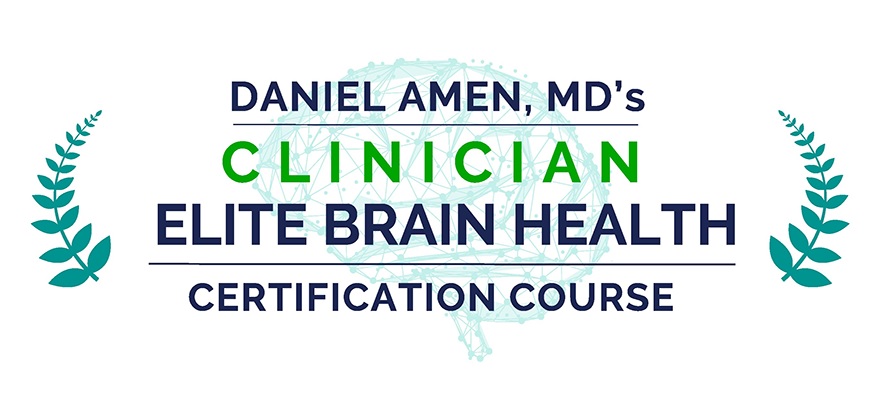
Many clinicians can sense it. The old way of talking about mental health only through labels and symptom checklists feels incomplete. Patients want to understand what is happening inside their brain, not just what their diagnosis is called. At the same time, neuroscience research and brain health education have become easier to access for everyday practitioners.
Out of that mix has grown a more brain centered way of working with patients. Instead of focusing only on what people do or feel, clinicians are also asking, what might be going on in the brain that leads to this pattern? The result is a shift in how practices look, sound, and function.
Here you see how clinicians are using brain based approaches to change the way they assess patients, design treatment plans, communicate hope, and build thriving practices. You will also see where formal brain health training and certification can fit into that picture.
Contents
- Why Brain-Based Approaches Are On The Rise
- From Diagnosis To Brain Function: A New Lens For Assessment
- Practical Ways Clinicians Use Brain-Based Tools In Treatment
- How Brain-Based Approaches Change The Feel Of A Practice
- Where Certification And Advanced Training Fit In
- Taking Your Next Step Toward Brain-Based Practice
Why Brain-Based Approaches Are On The Rise
Brain based care is not a brand new idea. However, several trends have pushed it into the spotlight. Understanding those trends can help you decide whether leaning into brain health is a smart move for your own work.
Patients Want Deeper Explanations
Patients arrive in your office after years of internet searches, podcasts, and personal reading. Many have already heard phrases like “neuroplasticity” and “trauma and the brain.” When they meet with you, they are not only asking, “What do I have?” They are also asking, “What is happening in my brain and what can I do about it?”
Clinicians who can answer those questions with simple, science grounded explanations often notice something shift. Patients sit up a little straighter. Their shoulders drop. They feel less defective and more hopeful, because the focus moves from personal failure to brain function that can often be supported and improved.
Traditional Training Left Gaps
Many professionals received excellent training in diagnosis, medication management, and psychotherapy, yet only a thin slice of clinically useful neuroscience. You might remember memorizing brain regions for an exam, but not how to connect those regions to everyday clinical decisions.
Brain based approaches fill that gap. They do not replace your original training. Instead, they add a layer of understanding that ties brain systems, history, and environment together in a practical way.
Neuroscience Feels Concrete And Hopeful
It is one thing to tell a patient, “You have depression.” It is another to show them a simple diagram of brain areas linked to mood, motivation, and rumination, then explain which lifestyle and treatment steps support those areas. That kind of conversation often feels more concrete and empowering.
As a clinician, it can be refreshing to talk about specific brain systems instead of only abstract labels. You gain more ways to frame progress and setbacks, both for yourself and for the people you serve.
From Diagnosis To Brain Function: A New Lens For Assessment
One of the biggest changes clinicians report after adopting brain based approaches is how they conduct assessments. Instead of stopping at symptom clusters, they look for patterns that hint at underlying brain function.
Gathering Brain-Relevant History
Brain oriented assessments usually include specific questions about head injuries, prenatal and birth complications, toxins, infections, sleep patterns, substance use, and family history of neurological or psychiatric issues. These details can dramatically change how you view a case.
For example, a patient with irritability and focus problems might previously have been seen only through a behavioral lens. When you discover a history of multiple concussions, chronic sleep deprivation, and heavy energy drink use, a clearer brain health picture comes into focus.
Using Structured Brain Health Questionnaires
Many clinicians integrate brain health questionnaires that map reported symptoms onto possible brain system patterns. These tools do not replace imaging or formal testing, but they help organize clinical impressions.
Over time, you start recognizing familiar constellations of symptoms that suggest certain brain networks might be overactive, underactive, or struggling to coordinate. That pattern based awareness can guide both your treatment recommendations and your decisions about when to refer for additional assessments.
Reframing Complex Cases
Brain based assessment also changes how you view people who have collected multiple diagnoses over the years. Instead of seeing them as a tangled list of labels, you can begin to view them as individuals with a unique brain history and set of vulnerabilities.
That reframing can soften frustration on both sides. The patient feels less like a walking diagnosis list. You feel less stuck and more curious, which often leads to creative, compassionate care.
Practical Ways Clinicians Use Brain-Based Tools In Treatment
Brain based thinking is only helpful if it leads to practical steps. Fortunately, clinicians are finding many small, manageable ways to bring brain health into everyday sessions.
Designing Brain-Smart Treatment Plans
Instead of giving the same generic advice to every patient, brain focused clinicians tailor recommendations to likely brain patterns. For instance, a patient with low motivation and sluggish thinking might need very different strategies from someone whose brain tends to race and stay on high alert.
Treatment plans might include:
- Specific sleep routines that support the brain’s housekeeping systems.
- Targeted movement plans that match the patient’s energy profile and physical abilities.
- Nutrition and supplement suggestions based on brain supportive principles.
- Psychotherapeutic strategies that respect attention span, processing speed, and emotional regulation capacity.
Crucially, these plans stay grounded in the realities of the patient’s life. Brain based does not mean idealized or rigid. It means wise and tailored.
Using Simple Brain Education As An Intervention
Many clinicians discover that a few minutes of brain education, offered at the right time, can shift a session more than a long lecture in theory ever could. For example, explaining how chronic stress shapes the amygdala and prefrontal cortex can make a patient more willing to experiment with stress reduction practices.
Visual aids, metaphors, and short handouts help here. Over time, some practitioners develop a small library of brain based explanations they can pull from quickly, like tools on a belt.
Supporting Medication And Medical Decisions
For prescribers, brain based approaches inform how they discuss medication with patients and how they think about combinations of treatments. For non prescribers, they provide language for collaborating with physicians and psychiatrists.
Instead of viewing medication as the only lever, the conversation can become, “How do medication, therapy, and brain healthy lifestyle steps work together to support your brain as a whole?” Patients tend to appreciate that broader, integrated view.
How Brain-Based Approaches Change The Feel Of A Practice
The benefits of a brain centered approach are not just clinical. They also show up in how your practice feels to patients, how you present yourself, and how your career unfolds.
Standing Out In A Crowded Field
When clinicians embrace brain health, their websites, business cards, and consultation calls start to sound different. Instead of generic phrases about treating depression and anxiety, they can confidently say that they use neuroscience informed, brain centered methods.
Patients notice that difference. Many actively seek a provider who understands brain health, especially if they or their loved ones have experienced head injury, learning challenges, or complex mental health histories.
Building Brain-Focused Services And Programs
Some practitioners create specialized services around brain health, such as cognitive wellness programs for older adults, recovery tracks for patients with a history of concussions, or classes on brain healthy parenting.
These offerings can be delivered in person or online, individually or in groups. They often become natural entry points for new patients and provide additional revenue streams beyond one to one sessions.
Reducing Clinician Burnout
On a more personal level, learning about brain health can reignite your curiosity and sense of purpose. Tough cases feel a little less hopeless when you have new frameworks and tools. Wins feel more meaningful when you can picture what might be changing inside the brain, not just on the symptom checklist.
Many brain focused programs also encourage clinicians to apply the same strategies to their own lives. When you improve your sleep, movement, nutrition, and stress habits in order to protect your own brain, work often feels more sustainable.
Where Certification And Advanced Training Fit In
You do not need a formal credential to begin thinking in brain based terms. Reading, short courses, and self study can take you a long way. At some point, however, many clinicians decide they want deeper, more structured training.
Comprehensive brain health clinician certifications offer that structure. They usually bundle together in depth teaching on brain systems, guided assessments, case formulation, treatment protocols, and mentorship. For clinicians who want to build a clear brain centered niche, that kind of training can be a turning point.
The investment can be significant, especially in high level programs that include live support and extensive resources. For that reason, it helps to ask yourself a few questions:
- Do I want brain health to be a central theme of my practice, not just a side interest?
- Am I excited about marketing myself as a brain health clinician or consultant?
- Would deeper training help me feel more confident with the complex cases I already see?
- Am I willing to implement what I learn, not just collect another certificate?
If the answer is yes more often than no, then investing in robust brain health certification may be a logical next step. It can solidify what you already know, fill in gaps, and connect you with a community of clinicians who are walking the same path.
Taking Your Next Step Toward Brain-Based Practice
Brain based approaches are not a separate branch of healthcare. They are a way of seeing that touches everything you already do. Whether you are a physician, therapist, coach, nurse, or allied professional, learning to think with the brain in mind can sharpen your decisions and deepen your impact.
You can start small by bringing a few brain focused questions into your assessments, sharing simple brain education with patients, or adjusting one part of your treatment plans to better support brain function. As your comfort grows, you may decide to pursue more formal training or certification that helps you step fully into a brain health specialty.
Whatever route you choose, you are not just adding trendy language to your work. You are caring for the organ that shapes every thought, feeling, and decision your patients experience. For many clinicians, that shift in focus changes everything about how practice feels, both for them and for the people they serve.

